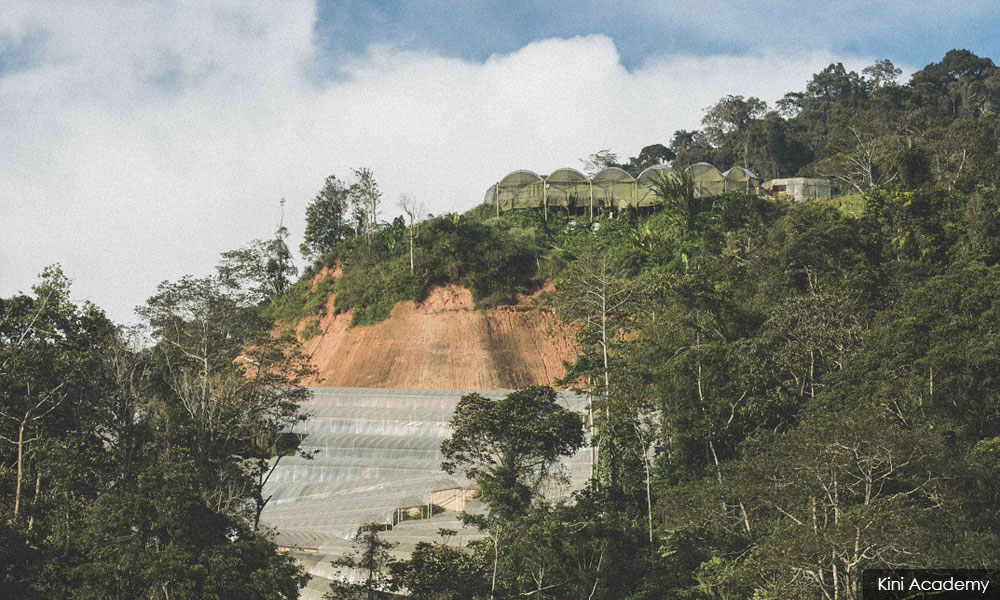SPECIAL REPORT | Are the worries of vegetable farmers in Cameron Highlands over? Or is the new arrangement by the Pahang state government an indirect takeover of their agricultural land?
These are the nagging questions which have arisen raised after vegetable farmers reluctantly agreed, after years of a tug-of-war with the state government, politicians and middle persons.
Cameron Highlands farmers have for long groaned and cried out for the security of the tenure of their farming land. They are the ones who grow and harvest most of the vegetables that Malaysians eat but they remain deprived of land rights in perpetuity – no matter for how long they have toiled on the land.
For decades, the farmers had been victims – almost a bondage – to the Temporary Occupation Licence (TOL) system which involved, in some cases, middle persons.
The TOL needs to be renewed annually and farmers were at the mercy of the politicians and middle persons who had links with the district Land and Mines Office – they had the authority to approve or reject their applications for renewal of their TOLs.
The renewal was discretionary and hence the farmers always claimed that they got the short end of the stick, prompting reports to the Malaysian Anti-Corruption Commission (MACC).

Besides fundamental issues of law, justice and integrity, there were reported cases of encroachment, land clearance (above) and intimidation.
Allegations of widespread bribery were also common, and the banks in Cameron Highlands are said to have the highest amount of cash deposits in the country. Smallholders are said to be the most vulnerable as they are hard-pressed to make under-the-table payments.
In March last year, the Pahang state government introduced a new land policy which it said would end misgivings over land grabs, which had previously led to crackdowns by the National Security Council.
It announced a cause of action which it claimed would be beneficial to all parties. Like the issues faced by the durian farmers in Raub, it involved a third party - the state-owned Pahang Corporation Sdn Bhd (PCSB).
Into the fire
Pahang Menteri Besar Wan Rosdy Wan Ismail then announced the TOL system would no longer be applicable. It would be replaced with the new policy and the 1,018 farmers in Cameron Highlands would be allowed to work their land under an arrangement.

Under the new policy, all farming land in Cameron Highlands would be leased to the farmers via PCSB in a 3+2 years deal, involving 5,526,219 hectares. The land has been allotted into 78 parcels across three sub-districts - Ulu Telom (58) Ringlet (14) and Tanah Rata.
The farmers, who initially thought this would be their path to release and relief, soon found out it was a case of out of the frying pan into the fire as they said the new policy was rife with unreasonable terms.
First was the fee. While previously the farmers paid about RM880 per acre, under the new arrangement, they will need to fork out RM4,500 per acre annually - an increase of 500 percent.
Then, there’s PCBS’s regulatory unit – MyGap - which will issue certification to ensure that farmers adhere to “advanced and responsible farming methods”.

No one has told the farmers what is “responsible” and what is “advanced”. Hence, they fear the propensity and the discretionary powers accorded could lead to abuse and misuse.
Such uneasiness is understandable, for there is a history of abuse which caused the MACC to arrest 21 people and charge 11 between March 2015 and October 2018.
This above report was produced as part of an investigative journalism course organised by Kini Academy. This article is co-published with Makkal Osai and theSun. Please send all feedback/comments to: kiniacademy@malaysiakini.com - Mkini



No comments:
Post a Comment
Note: Only a member of this blog may post a comment.